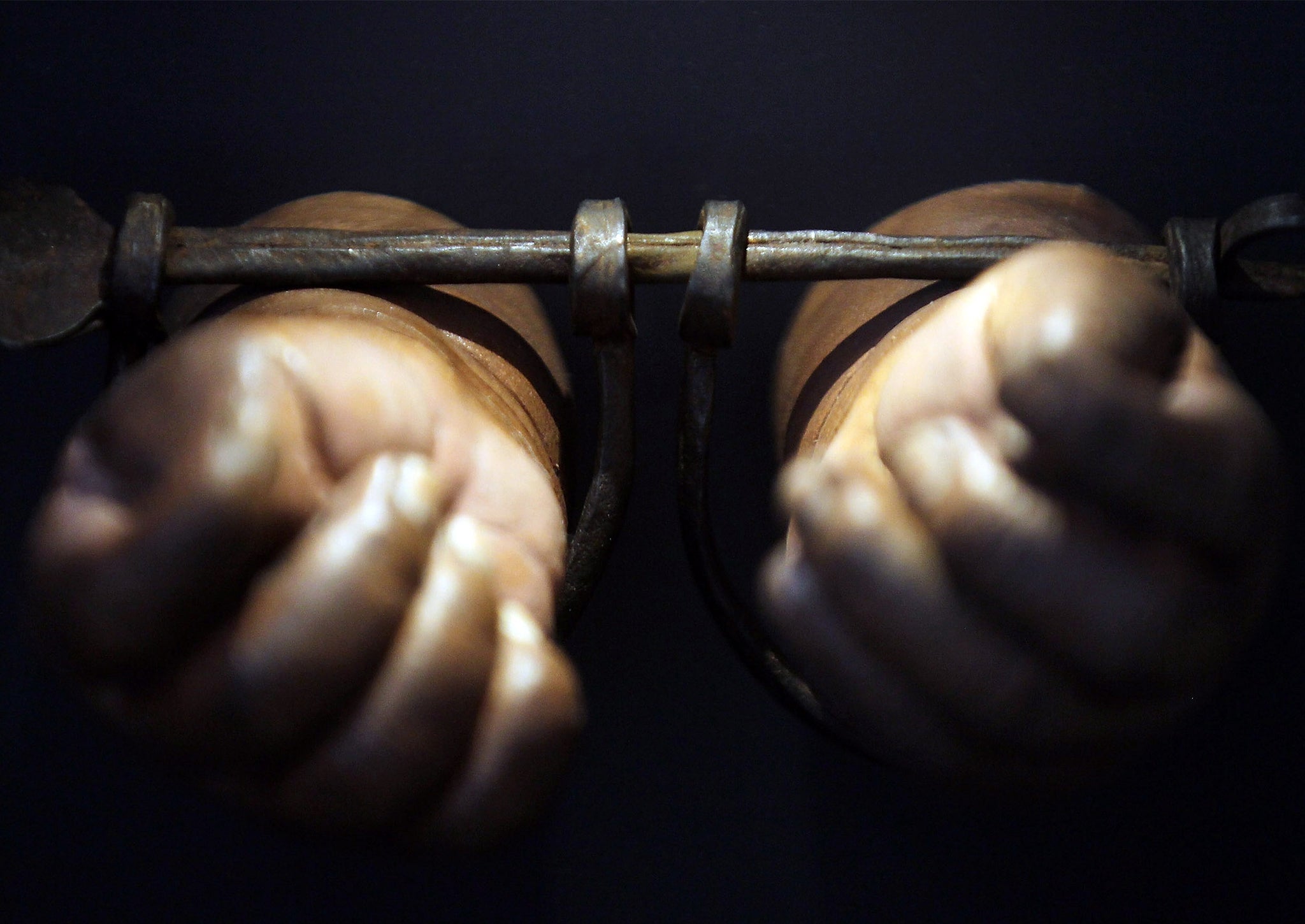The Independent's journalism is supported by our readers. When you purchase through links on our site, we may earn commission.
Rugby World Cup: Why it's time for England to stop singing Swing Low, Sweet Chariot
Originally sung by African American slaves, its use as an English sporting anthem is morally wrong and holding the sport back

Your support helps us to tell the story
From reproductive rights to climate change to Big Tech, The Independent is on the ground when the story is developing. Whether it's investigating the financials of Elon Musk's pro-Trump PAC or producing our latest documentary, 'The A Word', which shines a light on the American women fighting for reproductive rights, we know how important it is to parse out the facts from the messaging.
At such a critical moment in US history, we need reporters on the ground. Your donation allows us to keep sending journalists to speak to both sides of the story.
The Independent is trusted by Americans across the entire political spectrum. And unlike many other quality news outlets, we choose not to lock Americans out of our reporting and analysis with paywalls. We believe quality journalism should be available to everyone, paid for by those who can afford it.
Your support makes all the difference.The Rugby World Cup starts on Friday, with the hosts England facing off against Figi at Twickenham. As you'd expect, the home side's fans will be out in full force, and singing their hearts out in support of Stuart Lancaster's men. Whatever happens on the pitch however, one thing is inevitable. Swing Low Sweet Chariot will be sung. It has been the anthem of English rugby for at least 25 years now. However, its history should give England's rugby fans pause for thought before they belt it out from the stands.
The origins of Swing Low are actually rooted in pre-Civil War America. It was first sung by slaves who longed for freedom. After the end of the War, its use declined, but it saw a revival a century later, and became part of the civil rights movement.
Its exact meanings are still being debated, although one leading African-American scholar has recently said that it's about the slave's longing for death. According to Professor Horace Clarence Boye, "[It] fits into that group of spirituals that say 'I would rather die than be here. Lord, just come and take me right now. Instead they sing this, 'Swing low sweet chariot, coming for to carry me home.' Where's home? That's heaven. Or at least not here."
So on Friday, a largely white and middle-class crowd will be singing a song they believe to be uplifting and inspiring, but is actually about black slavery and its conditions being so unbearable that dying is a better option. Why?
England's adoption of Swing Low has been traced back to 1988, when a group of boys from Douai School were watching England play Ireland at Twickenham. They started singing it in honour of the Nigerian-born Chris Oti. He was England’s first black player in over 80 years, and had just scored a triumphant hat-trick. However, some fans have claimed that the song's use goes back as early as the 1960s. It was allegedly sung as part of an elaborate drinking game in rugby circles – complete with sexually explicit hand gestures.
Either way, it doesn't look good. Even if the song was co-opted in 1988, it was an act of cultural appropriation by a group of predominantly white boys, who thought it was a good idea to sing a slave spiritual to celebrate a black player. Now it's a rugby tradition, but do England fans seriously think it's an acceptable one? And if it's true that it originated as a drinking game, that's even worse. Some white English men co-opted such a heartfelt song about black suffering, and coupled it with gestures for masturbation. Should we really be honouring their decision?
Rugby already has enough of an image problem without being guilty of cultural appropriation. To its detractors, it's a sport played by the privileged few. Even though much of this stereotype is no longer true – 10 of the 31 players in England’s World Cup squad are state educated, which might not seem like much but is a considerable improvement on previous years – it still holds sway for much of the public.
In my experience, the hard feelings are particularly strong among football fans. If you take the famous quote “Football is a gentleman’s game played by hooligans, and Rugby is a hooligans’ game played by gentlemen," and swap “hooligans” for “working-class”, and “gentlemen” for “the upper-class” you can begin to see why there is such a disconnect.
This class disconnect may seem separate from rugby's race issue. But given that many BME families are more likely to be living in poverty, the relationship between the two is hardly insignificant. It's partly why the World Cup's reach and popularity has never reached its full potential, and always lagged so far behind football. But it's also one of the reasons why the proportion of BME players in the average England squad has always been so low. Until we do something to make rugby more appealing to wider range of people, it will remain stuck with an image problem, and England will be its arrogant standard bearers.
Dropping Swing Low Sweet Chariot as an anthem would be a start in repairing some of the damage. It's not a song that has any place within rugby. Putting an end to it would not only recognise past mistakes, but also be a clear signal that the sport is determined to be more inclusive. Cultural appropriation by its very nature creates an "us and them" environment, and it is this more than anything else that rugby needs to lose.
Join our commenting forum
Join thought-provoking conversations, follow other Independent readers and see their replies
Comments